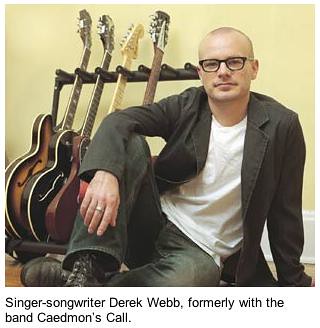Aesthetics: Music: Pop music with new tech assimilates and advances musics of the religions
.
The music recording industry is fast falling behind the nutech-supported emergence of the musics of the religions from their cultural ghettoes (in regard to religion-specific nu music). I venture this thawt when the phenom is measured by the outburst of creativity of those hitherto industry-restricted sources.
In googling for the search terms "Christian Music iTunes," I learned about a still-blatantly Christian podcaster called Build the Church, not necessarily what I had in mind. I clicked up the Google reference and arrived at a BthC press release. Here's its Jun10,2k6 celebratory statement:
Pleased to see some info tidbits on how iTunes Music Store relates to some of the range of Christian music phenom today, I found out further how closely Apple's iPod product interfaces with the accessiblity of music with some definite Christian factor in its creative product.Christian Music Podcast Reaches 100 Episode Milestone Build the Church is one of the internet's leading Independent Christian Music Podcasts and the first to reach the one hundred episode milestone.
(PRWEB) June 10, 2006 -- the Church (www.buildthechurch.com) became one of only a handful of podcasts to reach the 100th episode milestone with Build the Church #100 played on Friday, June 9th. The podcast featured various highlights and songs played from the first 99 shows.
"We are delighted to be one of very few music podcasts to reach the one hundred podcast milestone and look forward to our next one hundred shows!" says creator Mark Linder. "Build the Church has grown since the first show as has the variety of music played on the podcast. We can only thank the listeners for being faithful and suggesting us to their friends."
Build the Church is an Independent Christian Music podcast that features today's best up and coming Christian artists. Build the Church broadcasts near daily and plays a large variety of podsafe Independent Christian Music.
Build the Church can be found at www.buildthechurch.com or in MySpace at www.myspace.com/buildthechurch. Subscribe to their RSS feed at their Web site or by going to http://feeds.feedburner.com/BuildTheChurch. Build the Church is located in over a hundred internet directories including iTunes, Odeo, Yahoo Podcasts and the Podsafe Music Network.
Of course, just what any "definite Christian factor" in music may be, is an issue of definition for worldview-conscious music aestheticians–what's the definition of "Christian music" and how does it relate to the industrial genre/s of "Christian Music" and the entrepreneurial enablers of the latter which can be denominated the "Christian Music industry"–some of which is still very much stuck to the old business model of the (music) Recording Industry Association of America. That is, not interested in wide accessiblity, not interested in generating product that is free of DRMs (Digital Recording Management) embeds in the records, cassettes, and digital downloads. But professional podcasting can avoid these issues.
Certain assumptions of the new developments are evidenced in BthC's press release: the whole phenom is youth-oriented, and consequently it is nutech-oriented (podcasting in this case), and it has no barriers to new musical genres and styles (like hiphop and rap).
Another take on the matter comes to us from a major article by Beau Black, "New media introduce Christian music to new markets," a Religion News Service story that I found in the Baptist Standard from Dallas, and which I located from the same Google Search for 'Christian Music iTunes.'
"Technology, once decried as the music business’s executioner, now is seen by many as its salvation," says Black. The article particularly concentrates on "Singer-songwriter Derek Webb, formerly with the [well-known Christian] band Caedmon’s Call."
This wave of “new media” technology, including Apple’s iTunes Music Store and the website MySpace, enables artists to find fans and connect with them immediately. It’s also creating opportunities for Christian record companies – [which have been] particularly battered by the downturn in the music industry — to target consumers.

Musicwhirld, by Audiovisiotor
And for Christian artists who make music for the masses and want to find a broader audience, the technological revolution is freeing their music from what some call the Christian music ghetto.What we note in the combined pieces above is the emergence of a nexus where iTunes Music Store, iPod, and My Space afford independent artists to cast their nets out into the deep of music listeners' ears attuned to the web, create for that milieu, and perhaps reach and form a new audience for their workk. This combo does not at all settle the issues around DRMs sponsored by the older music industry represented by RIAA, but it is a least creating approach to launching a music-making vocation without the help of the music recording industry and its old-capitalism corporations, as such.
As Christian artists employ new media like iTunes and MySpace, they’re finding fans and connecting with them in immediate and lasting ways.
This blog-entry is still in development.
aesthetics, arts, music, musiconline, podcasting, musicpodcasting
Further Resources:
You may want to pick your way thru my Google Search, but there's a lot of static results
Same article featuring Derek Webb but photo is attributed to RNS

 >br>
>br>









No comments:
Post a Comment